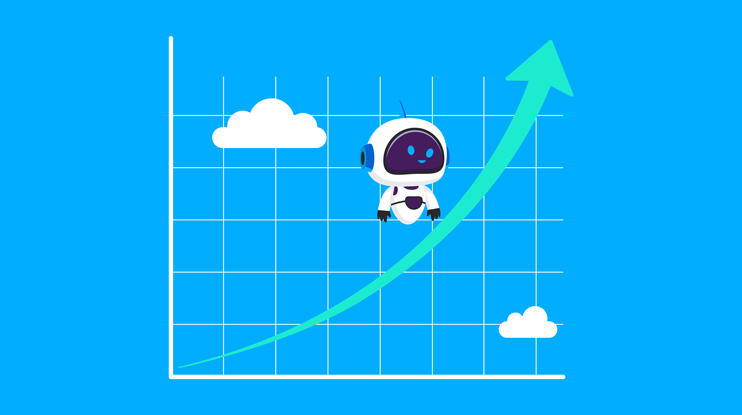Salesforce has long been synonymous with Customer Relationship Management (CRM). Yet, its vast capabilities and expansive ecosystem continue to defy such limited categorization.
Having recently attended Dreamforce 23, I was struck by how Salesforce has morphed into a hub for Data and AI advancements. This was exemplified with Salesforce announcing the launch of Einstein 1 Platform which integrates Salesforce Data Cloud to bring data and AI to every Salesforce app.
Here are four key insights I gleaned from the conference:
The Rise of Trusted AI
While AI has slowly been felt in our everyday lives for years, generative AI is bringing this innovative technology to the forefront of mainstream culture.
Leveraging AI for Business Growth: At Dreamforce 23, the pivotal role of AI in driving business growth was highlighted. A survey indicated that 86% of global IT decision-makers anticipate that generative AI will be integral in their organizations in the near future.

During the Keynote presentation, Salesforce showcased its rebranded Salesforce Einstein 1 Platform. This platform provides businesses with robust AI capabilities, both out of the box and customizable, enabling customers to automate tasks and make informed decisions across various Salesforce clouds.
Championing Trusted AI: As businesses venture into AI, selecting an AI vendor committed to ethical and responsible AI is crucial. The importance of security has been reinforced over the past year. The importance of security has been reinforced over the past year as the story of generative AI unfolds. These events have underscored the dangers of using customer data on public generative AI platforms and the necessity for human oversight to validate AI-generated content. Businesses implementing generative AI should do so within a controlled setting, fortified with the necessary security measures to protect sensitive data. Salesforce champions this importance with its Tenets of Trusted, Ethical, and Humane AI.
Similarly, at Coveo, our dedication to democratizing AI is unwavering. We commit to shielding your enterprise in the GenAI era from potential hallucination and data leakage, all while providing you with a relevant generative answering solution that enhances employee productivity and elevates customer satisfaction.
Learn more about how Coveo is making trusted, enterprise-ready generative AI.
Knowledge Management is the Foundation of Accurate AI
Every company boasts data, but its utility hinges on effective management. While knowledge bases and FAQs offer foundational support, they falter due to the sheer weight of content management leading to content that can lack accuracy and personalization.
ChatGPT and other LLM tools are revolutionizing data retrieval, particularly in industries that handle large amounts of siloed and unstructured information. They’re poised to transform sectors, notably customer service, that grapple with such data challenges. But there are challenges. Reports of ChatGPT’s hallucinations and inaccuracies, coupled with data protection concerns like those raised by Italy, highlight the need for vigilance.

By implementing solid knowledge management (KM) practices to ensure the clarity, cleanliness, and organization of said data, your company can move ahead of the competition. Here are a few key best practices for optimizing your KM for accurately generated AI results.
Understanding Data: Identifying the type, source, and condition of data is essential. Older content might still be relevant if appropriately tagged.
Quality KM Drives Productivity: As the Generative AI revolution unfolds, the convergence of diverse customer data will play a pivotal role in enhancing productivity, streamlining service delivery, and improving user experiences. Thus, tools to help scale data normalization across systems will be paramount.
Quality Over Quantity: Remember, AI’s efficacy is determined by the quality of data it’s trained on. Impeccable, unbiased, and domain-relevant data leads to enhanced content grounding in LLMs which will generate the most relevant outputs.
Data Responsibility: Prioritizing data security and governance are essential to foster customers’ trust in AI data retrieval. More importantly, human involvement in proofreading or reviewing the generated content is recommended to guarantee accuracy for both customers and employees.
Wondering who’s truly accountable for organization-wide KM? Bust that and two other KM myths holding your organization back from a true digital transformation.
The Imperative of a Connected Experience
Customers want to interact with your business in a myriad number of ways. Unfortunately, this often amounts to experiences tainted by silo mentality.
Salesforce’s October 2020 State of the Connected Customer report highlighted that while 76% of customers anticipate consistent interactions across departments, only 54% believe sales, service, and marketing teams share information effectively. This disconnect is concerning, especially considering that 74% of customers use multiple channels for transactions.
Creating a coherent, connected experience is not just pivotal in today’s experience-centric economy. In the AI era, connectivity is essential to harness and optimize data effectively for AI applications.
Break Data Silos to Optimize AI: Efficient data usage demands seamless integration across various enterprise systems, a challenge in today’s fragmented digital landscape. Eliminating these silos not only ensures consistent customer experiences but also paves the way for data-driven personalization. Given the fragmented nature of today’s data landscape and the fact that merely 0.5% of unstructured data is actively used by businesses, as reported by Techradar, there’s immense untapped potential.

With an estimation that 80% of global digital data will be unstructured by 2025, businesses need to prioritize organizing their data across platforms before adopting new AI technologies.
Elevate Experiences Across the Organization: Multi-experience, user experience, customer engagement, and employee empowerment are the cornerstones of this connected experience era. Gone are the days of isolated digital transformations. Today, it’s about a holistic approach where diverse applications converge at the core.
As businesses venture further into this domain, they must amalgamate different expertise areas – from IT and business to legal and creative — ensuring a synergy that fosters innovation and ensures responsible AI deployment. This is referred to as a Total Experience.
This webinar will help you understand how a Total Experience AI platform can deliver on the promises of helping your teams scale — or, said differently — do more with less while delivering the world-class digital experiences your customers and employees expect.
A Shift in the Employment Landscape
AI is now integral to many applications today. While concerns like data privacy and the idea of “AI replacing jobs” persist, AI’s potential to aid humans and optimize our work is evident. McKinsey research indicates that by 2030, AI might free up 30% of employee time.
Take Einstein 1 for Service Cloud as an example: it summarizes information from multiple Salesforce data systems to produce generative responses to a variety of customer inquiries and questions across all communication channels. This tool empowers customer service agents to simply review and proofread the generated answers instead of spending hours summarizing relevant content from multiple sources to write an answer manually.

Augmentation Rather Than Automation: AI’s role isn’t about replacing jobs but optimizing specific tasks within them. The distinction between jobs and tasks is critical. While AI can efficiently handle specific tasks, jobs, in their essence, require human discernment. The future work paradigm promotes AI-human synergy rather than substitution. As AI streamlines conventional tasks, it also introduces innovative ones, redefining job scopes. The challenge and opportunity for businesses and their workforce lie in transitioning skill sets to harmoniously incorporate AI.
At Dreamforce 2023, the spotlight was on Generative AI’s expansive influence on many facets of work from problem-solving to content creation. For instance, Generative AI can expedite a marketer’s email drafting process by curating information from various Salesforce customer interactions and touchpoints. Furthermore, Generative AI enhances the onboarding experiences for both employees and customers by delivering personalized, adaptive, and AI-enhanced learning pathways.
Closing Thoughts
Salesforce’s Dreamforce 23 underscored that we are on the cusp of a new digital era, where Data and AI are at the helm. As we navigate this evolving landscape, businesses must be agile, informed, and proactive, ensuring they leverage these technologies responsibly and effectively.
However, before they can harness the full potential of AI, most organizations must undergo significant preparation and adaptation with their knowledge management practice, tech stack, and employee training programs.


